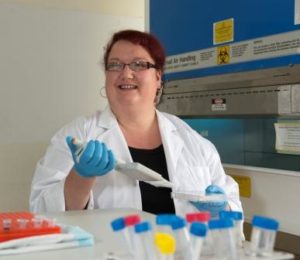 Flinders University researcher Lisa Pogson (pictured) says she has gained “a wealth of knowledge” from a prestigious PhD short course taught by some of Australia and Europe’s best biological scientists.
Flinders University researcher Lisa Pogson (pictured) says she has gained “a wealth of knowledge” from a prestigious PhD short course taught by some of Australia and Europe’s best biological scientists.
Ms Pogson, based in the School of Biological Sciences, was awarded one of only 60 positions nationwide in the exclusive European Molecular Biology Laboratory (EMBL) Australia PhD course, held in Melbourne earlier this month.
The intensive two-week course – offered for the first time in Australia to high-achieving first and second year PhD candidates – aims to teach the latest techniques and approaches used by leading biological scientists worldwide.
Ms Pogson said the skills and experience she has gained from the course will greatly assist her PhD research, which explores the role of a family of proteins in diabetes and cancer.
“I walked away with a wealth of knowledge from people who are at the forefront of their field, particularly in the areas of medical imaging, neuroscience and structural biology,” Ms Pogson said.
“You don’t often see science explained at a PhD level, it’s more targeted at the conference level for academics, so it was great to hear about what these labs are doing in a way that could benefit a PhD student,” she said.
“A lot of what I learnt can be applied to my PhD right now but it’s also opened my eyes to the future, and the many directions I can take my career in.”
Ms Pogson, who was selected from a pool of more than 100 applicants, said she encouraged other Flinders PhD candidates to apply for the course in coming years.
“It’s a great opportunity to network with other PhD students from across the country and interact one-on-one with leading Australian scientists.
“I’d definitely encourage other students to apply because it’s a fantastic opportunity and it really does broaden your research knowledge.”
Australia joined EMBL, a publicly funded European organisation, as an associate member in 2008. Nodes have been set up across Australia and this a year a South Australian node was established at the South Australian Health and Medical Research Institute.

